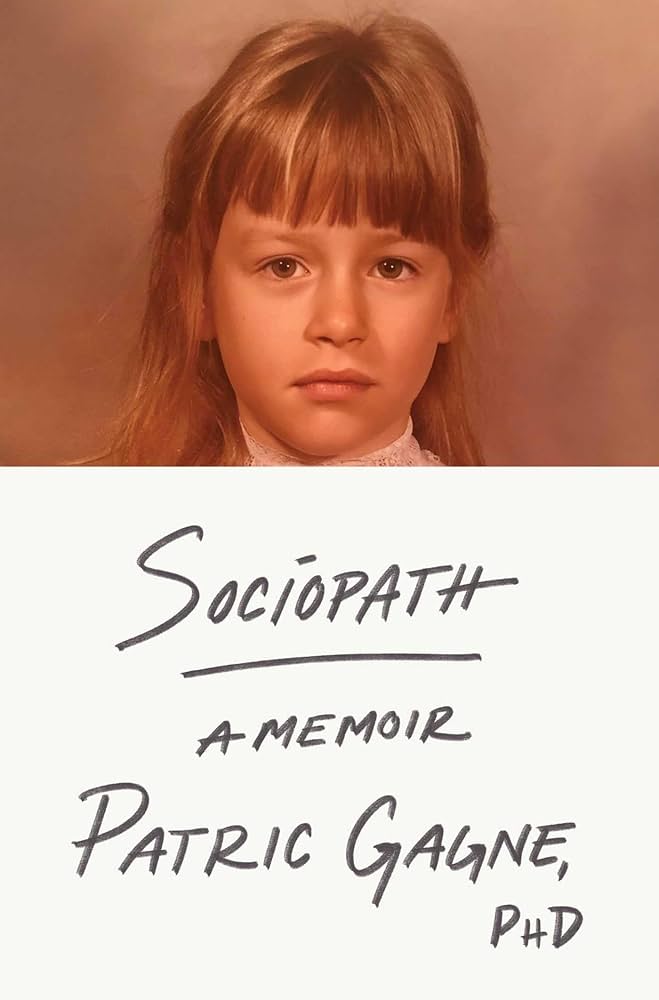
Sociopath: A Memoir
Patric Gagne
Questions & Answers
The author, Patric Gagne, navigates and reconciles their complex identity as a sociopath by acknowledging and embracing their differences while striving to align with societal expectations and personal values. Despite being a sociopath, Gagne is also a mother, wife, therapist, and writer, demonstrating a capacity for empathy and prosocial behavior. They challenge societal perceptions of sociopaths as inherently evil or monstrous by highlighting their own humanity and the complexities of their condition. Gagne's journey involves self-reflection, therapy, and learning to manage their emotions and behaviors, ultimately seeking to live a fulfilling life that aligns with both their unique identity and societal norms.
The author, Patric Gagne, defines sociopathy as a condition characterized by a lack of empathy, a diminished emotional experience, and a reduced capacity for guilt or remorse. She views it as a spectrum disorder, with some individuals exhibiting more extreme traits than others. Gagne believes that sociopaths act destructively due to their subconscious desire to feel something, often driven by anxiety and inner conflict.
The implications of sociopathy on personal relationships are significant, as individuals with this condition may struggle with forming deep emotional connections and maintaining stable relationships. They may also experience difficulties in societal interactions due to their disregard for social norms and their inability to empathize with others.
In terms of mental health treatment, Gagne highlights the lack of resources and understanding surrounding sociopathy. She argues that the condition is often misunderstood and stigmatized, leading to a lack of effective treatment options. Gagne's work aims to shed light on the condition and advocate for better support and understanding for those affected by sociopathy.
The author, Patric Gagne, seeks hope and representation for individuals with sociopathic traits by sharing her own experiences and advocating for understanding and support. Her story contributes to the broader conversation about mental health and societal understanding in several ways:
-
Breaking Stereotypes: Gagne challenges the common portrayal of sociopaths as irredeemable monsters, showing that they can be complex individuals capable of love and empathy.
-
Empathy and Representation: By sharing her experiences, she provides a relatable perspective for others with similar traits, fostering empathy and understanding.
-
Addressing Lack of Resources: She highlights the lack of resources and support for sociopaths, advocating for more research, treatment, and representation in mental health discussions.
-
Promoting Self-acceptance: Gagne's journey towards self-acceptance encourages others to embrace their unique traits and seek help without fear of judgment.
-
Encouraging Dialogue: Her narrative encourages open dialogue about mental health, challenging societal stigmas and promoting a more inclusive understanding of human behavior.
The author, Patric Gagne, navigates empathy and connection through a unique lens as a sociopath. She lacks natural empathy and struggles with emotional connections, yet she seeks them deeply. Her relationships, particularly with David, demonstrate the complexities of human connection. David's acceptance of her condition and his ability to empathize with her emotional void allows them to form a bond. This suggests that while empathy and emotional intelligence are crucial, they are not the sole determinants of meaningful relationships. Gagne's experience indicates that connection can transcend traditional definitions of empathy, involving understanding, acceptance, and shared experiences. It highlights the importance of communication and mutual respect in fostering emotional bonds, even for those who may not experience emotions in the conventional sense.
The author's journey as a sociopath offers valuable lessons for personal growth and societal attitudes towards mental health. Firstly, it highlights the complexity of sociopathy, showing that it's not just about a lack of empathy but also about a struggle with emotional regulation and a desire for connection. This challenges the simplistic portrayal of sociopaths as purely malevolent.
Secondly, the author's journey emphasizes the importance of self-awareness and understanding. By acknowledging her condition, she was able to manage her behaviors and seek help, demonstrating that personal growth is possible even for those with challenging mental health conditions.
Thirdly, the author's insights can inform societal attitudes by promoting empathy and understanding towards individuals with mental health conditions. It encourages the idea that mental health is a spectrum and that everyone, regardless of their condition, deserves compassion and support.
Lastly, the author's advocacy for research and treatment for sociopathy underscores the need for more resources and attention to mental health issues, ensuring that individuals like her receive the help they need to live fulfilling lives.